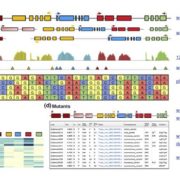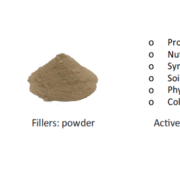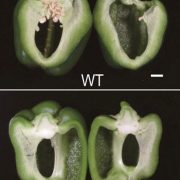Glyphosate-based herbicide effectiveness can be maximized by considering plant circadian rhythms (Nature Comms)
 Plants’ internal circadian clocks regulate the timing of many physiological and developmental processes. This circadian clock also controls plant sensitivity to the herbicide glyphosate, which is maximally effective at dawn. Here, Belbin et al. showed that the minimum effective dose varies with time of day, and that Arabidopsis plants with abnormalities in their clock showed altered timing of sensitivity to glyphosate. To understand the molecular basis for this, they identified genes regulated by both time-of-day and glyphosate and identified several genes involved in auxin signaling, suggesting that, “inhibition by glyphosate of processes related to auxin signaling might underlie the rhythmic sensitivity of hypocotyl length to glyphosate.” This discovery reveals another sophisticated strategy of plants to track the rhythm of external changes, and also provided a basis to refine agrochemical development through extending the concept of chronotherapy to agriculture. (Summary by Nanxun Qin) Nature Comms. https://doi.org/10.1038/s41467-019-11709-5
Plants’ internal circadian clocks regulate the timing of many physiological and developmental processes. This circadian clock also controls plant sensitivity to the herbicide glyphosate, which is maximally effective at dawn. Here, Belbin et al. showed that the minimum effective dose varies with time of day, and that Arabidopsis plants with abnormalities in their clock showed altered timing of sensitivity to glyphosate. To understand the molecular basis for this, they identified genes regulated by both time-of-day and glyphosate and identified several genes involved in auxin signaling, suggesting that, “inhibition by glyphosate of processes related to auxin signaling might underlie the rhythmic sensitivity of hypocotyl length to glyphosate.” This discovery reveals another sophisticated strategy of plants to track the rhythm of external changes, and also provided a basis to refine agrochemical development through extending the concept of chronotherapy to agriculture. (Summary by Nanxun Qin) Nature Comms. https://doi.org/10.1038/s41467-019-11709-5









